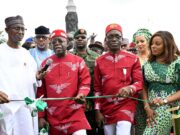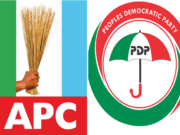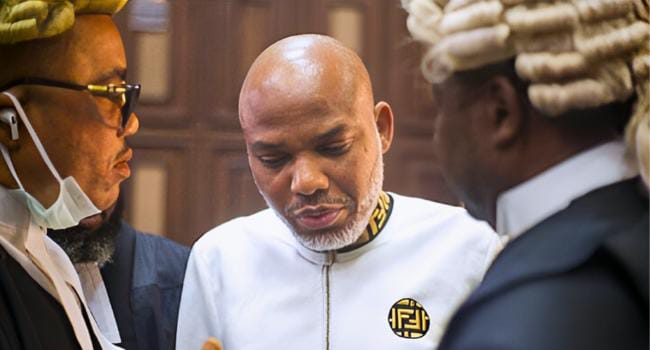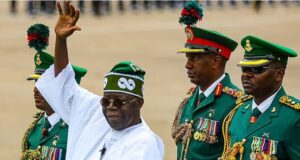Nnamdi Kanu, the detained leader of the Indigenous People of Biafra (IPOB), has signaled a desire to negotiate with the Federal Government over his ongoing trial.
 Advertorial
Advertorial
This announcement came during a session at the Federal High Court in Abuja, where Kanu’s lead counsel, Alloy Ejimakor, invoked Section 17 of the Federal High Court Act. This section empowers the court to facilitate reconciliation and encourage amicable settlements between parties.
Kanu has been in custody since his controversial arrest in Kenya in June 2021, facing terrorism-related charges brought by the Federal Government.

Ejimakor revealed that the legal team had submitted two applications, one of which challenges the court’s jurisdiction.
He stated, “If these applications are denied, we will move for the implementation of Section 17 of the Federal High Court Act.”
In response, Adegboyega Awomolo, representing the Federal Government, stated that he did not have the authority to engage in negotiations on behalf of the government.
He suggested that Kanu should direct his request to the Attorney General of the Federation.

Justice Binta Nyako, presiding over the case, reminded both parties that the court’s role is to adjudicate cases, not to act as a mediator or solicitor.
During the proceedings, Kanu also addressed recent violent incidents in the South-East, specifically denying any involvement in the killing of soldiers in Abia State.
He emphasized IPOB’s commitment to non-violence and expressed deep regret over the loss of lives. “We are fighting for freedom, not for violence.
We want people to be free,” Kanu declared.

He condemned all forms of violence and stressed the importance of Africa’s positive assertion on the global stage.
“We have endured much suffering,” Kanu added, “from historical slavery in Arabia and Europe to contemporary challenges in America.”
This development underscores the complex legal and political landscape surrounding Kanu’s trial and the broader issues of security and governance in Nigeria’s South-East region.

















